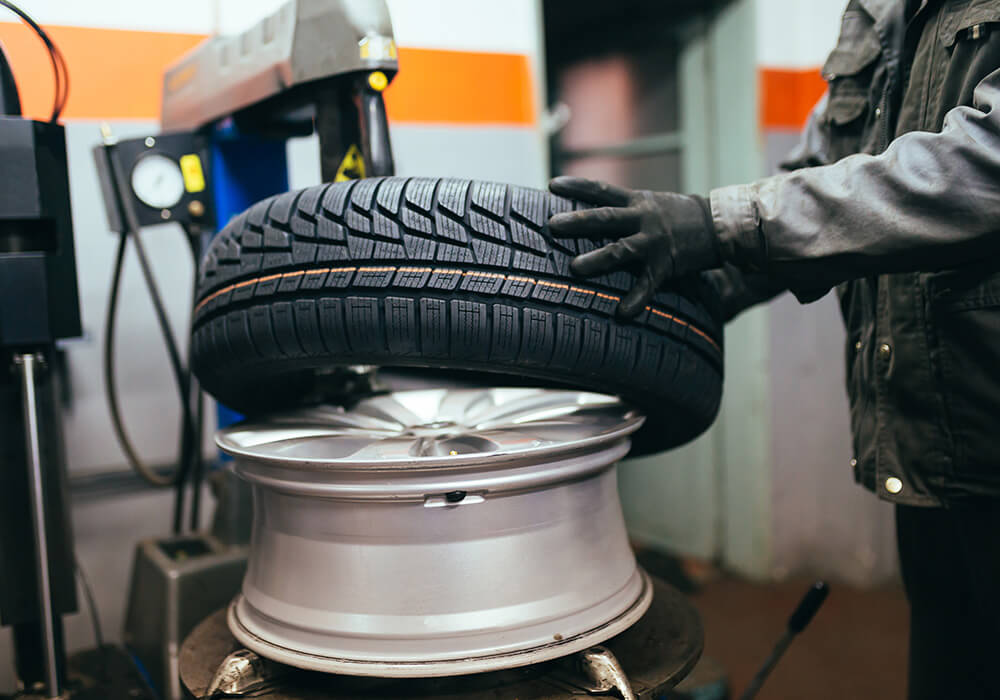Morris Tires: Your Partner for Professional GMC Tires Service
Morris Tires: Your Partner for Professional GMC Tires Service
Blog Article
Tire Service: The Effect of Climate Condition
When it involves ensuring ideal performance and security when driving, recognizing the influence of climate condition on tire service is important. From scorching warmth to icy roadways, each weather aspect can dramatically affect tire capability and total driving experience. By diving into the impacts of differing weather conditions on tires, vehicle drivers can obtain valuable insights that may boost their lorry's performance and longevity. In this conversation, we will check out the elaborate connection between climate condition and tire solution, clarifying the importance of weather-specific tire maintenance techniques and factors to consider.
Heat and Tire Efficiency
When subjected to high temperatures, tires experience changes in efficiency that can considerably affect car safety and security and handling. The warm generated from long term driving or warm weather conditions creates the tire rubber to soften, leading to lowered step life and enhanced wear. As the rubber becomes softer, the tire's grasp when driving diminishes, impacting braking distances and total grip. In extreme cases, extreme heat can also cause tire blowouts, posing a serious security threat to the automobile and its owners.

Winter Results
Cold weather condition conditions can have a substantial impact on tire efficiency and security. In cool weather, tires might also shed air stress much more quickly, which can affect managing and fuel performance.
To alleviate the effects of winter on tires, it is important to regularly inspect tire pressure and inflate them to the manufacturer's recommended levels. Using wintertime or all-season tires made for chilly climate conditions can also boost grip and hold on icy or snowy roadways. Correct tire upkeep, including regular evaluations for wear and damage, becomes also extra crucial during colder months to ensure optimal efficiency and security.
Rainy Issues Influence
During wet conditions, tire efficiency and security can be dramatically affected by the damp road surfaces and lowered presence. The step pattern of tires plays a crucial function in maintaining traction on wet roads. Tires with worn-out footsteps are much more prone to hydroplaning, where a layer of water develops up between the road and the tire surface, causing loss of traction. To battle this, vehicle drivers should consistently examine their tires for ample walk deepness and consider buying tires specifically made for damp problems.
In addition, rainy climate can likewise decrease presence, making it challenging for vehicle drivers to see the road ahead plainly (GMC Tire Service). In such problems, it is important to adjust driving her explanation speeds as necessary and preserve a risk-free complying with range to permit abrupt stops. Properly filled with air tires can likewise help in maintaining control on wet roadways by providing much better handling and hold
Snow and Tire Safety
Snow-covered roads pose unique difficulties for drivers, emphasizing the significance of appropriate tire option and upkeep. When driving in snowy conditions, having the ideal tires can make a considerable distinction in safety and security and efficiency. Winter tires are developed with special rubber substances and walk patterns to supply far better grip on snow and ice contrasted to all-season tires. The deeper footsteps and sipes of winter months tires help grip the roadway much better, lowering the threat of sliding and moving.

It is vital to adhere to manufacturer instructions when installing and using tire chains to avoid damage to the tires and automobile. By picking the ideal tires, keeping proper inflation, and thinking about added grip help like tire chains, drivers can enhance their security when navigating snow-covered roads.
Weather-Related Tire Maintenance
Weather-related tire maintenance encompasses an array of techniques intended at making sure optimum tire function and long life in various weather condition circumstances. One essential element of weather-related tire maintenance is tire pressure policy. Inspecting tire step on a regular basis and changing tires when tread wear gets to a specific depth is vital for maintaining grip and stability in damaging climate.
Final Thought
In conclusion, weather condition problems have a substantial impact on tire efficiency and safety. From heat affecting tire pressure and put on to cool climate minimizing grip, it is crucial to consider the weather condition when keeping and using tires.
In this discussion, we will check out the detailed click here to find out more partnership in between climate conditions and tire service, shedding light on the relevance of weather-specific tire upkeep practices and click factors to consider.

Report this page